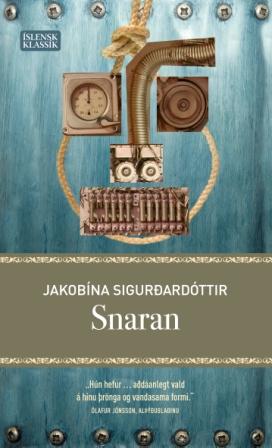We find ourselves in an undefined future. Heavy industry dominates the economy and the country has been flooded by capital and workers from abroad. The novel’s sharp satire is perhaps most clearly revealed in the character of the narrator, a sweeper in a factory; his words, opinions, and reactions. He tells his own story as well as that of the nation, beginning with the arrival of a foreign army during the war andthe social changes this brought about, relating history up until the events of the novel. Has this time perhaps already come?
“This is a remarkable book …
absolutely masterful.”
KILJAN, NATIONAL TV
“Jakobina was of course an absolutely incomparable writer; the fact that she wasn’t granted her rightful place as one of Iceland’s most important 20th century writers, that’s very simply because she was a woman on a farm up north…she wasn’t posh enough for the literary pack in Reykjavik.”
KILJAN, NATIONAL TV
“… an unusual and imaginative text, one in which the entire narrative consists of a monologue, or half of a conversation between fellow workers in a factory run by foreigners. The novel’s vision is grim, and its method involves the reality in a moral and politicial exposure of the protagonist’s class betrayal and social blindness.”
ASTRADUR EYSTEINSSON, A HISTORY OF ICELANDIC LITERATURE
(published by The University of Nebraska Press, Lincoln & London)
“The novel Snaran (1968; The Noose), which can be characterised as a negative vision of the future, describes a future Iceland that has turned into an enormous factory run by North America. The narrator is an old worker, a cleaner at the factory. He reflects on the personal and political developments that have led to the situation described in the book. He tells about the wartime and post-war demoralisation, the destruction of values, and the Americanisation of the island. The old worker converses with another worker, who is absent from the text and yet present, because one gets a sense, now and then, of his utterances through the reactions of the narrator.”
DAGNY KRISTJANSDOTTIR, NORDICWOMENSLITERATURE.NET




